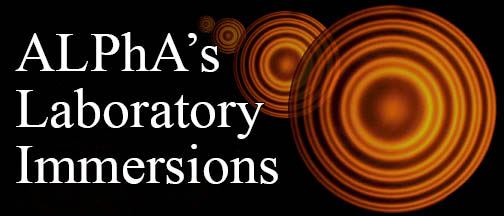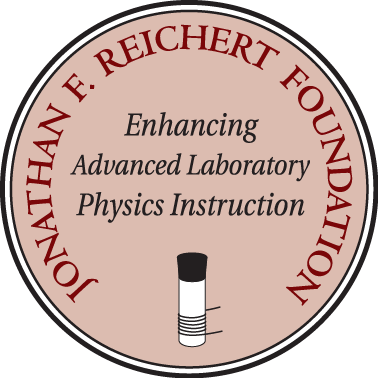- Home
- What We Do
- Laboratory Immersions
- Immersions 2024
- Imm2024Amherst_SoftMatter_Mechanical
Univ. of Massachusetts - Amherst, Amherst MA
Soft matter mechanical properties - Tensile testing and cavitation rheology
May 28, 2024 to May 29, 2024
Number of setups
available: 1
Maximum
number of participants: 3
------------------------------------------------------------------------------------------------------------------------------------------
Note: The UMass Soft Matter Summer Course follows this Immersion -- Participants will be able to also sign up for the undergraduate soft matter course that is happening May 29-31. This class is attended by undergraduates and faculty interested in learning more about soft matter and includes a tour of the soft matter research labs. Participants are encouraged to attend if they can.
Basic physics – Soft matter refers to a wide range of materials, such as polymers, gels and tissues, that can be easily moldable ordeformed. Studying soft materials' mechanical properties provides understanding of how these materials respond to various forces and deformations. We will use two methods to measure these materials’ properties.
One of the most common mechanical measurements is performed by deforming a specimen under uniaxial tension, usually until fracture, with a gradually increasing applied displacement at a constant displacement rate while measuring force and displacement.
The second method, cavitation rheology, involves inducing a fluid cavity within a soft material and quantifying a critical pressure of the mechanical instability. The pressure of the instability is directly related to the modulus and fracture strength of the material.
The apparatus – For both demonstrations, we will use the Texture Analyzer (TA)- a measurement system that moves in either an up or down direction to compress or stretch a sample, recording the force, displacement, and time.
We will use tensile grips to attach the sample for the tensile tests, as indicated in Figure 1a.
For cavitation tests, we will use the TA to support the sample, which will move in a controlled way into a syringe needle attached to a syringe pump and a pressure sensor. A schematic representation of the setup is presented in Figure 1b. The cavity will be introduced into the material in a controlled manner, and the pressure will be recorded using a laptop.
An additional camera can be used to record the deformation in the tensile test and cavity formation, collapse, shape, and volume changes during a cavitation rheology measurement.
Figure 1: Mechanical testing devices. a) Texture analyzer set for tensile testing (source: www.stablemicrosystems.com/), b) Schematic representation of cavitation rheology setup. (Source: Barney et al, Soft Matter,2019)
Importance of this experiment for current physics, metrology, or technology - Measuring mechanical properties of soft materials is important for numerous applications, including biomedical engineering, soft robotics, protective gear, and food science. Tensile testing is one of the standard methods to measure mechanical properties. Cavitation rheology, on the other hand, is a novel technique that allows us to overcome challenges of traditional methods that cannot be implemented for very soft materials, provide local measurements and tune size scales and strain rates. For example, cavitation rheology can be used to study the mechanical properties of biological tissues in vivo.
Skills that will be acquired performing the experiments – Participants will learn the basics of mechanical properties testing; how to operate the texture analyzer; how to measure different soft samples using two different techniques; and how to process the obtained data.
Outline the two-day immersion –
Day 1 – May 28 – Morning ) Introduction to mechanical testing and TA operation, and tensile testing measurements of different samples
Day 1 – May 28 - Afternoon) Generate plots from tensile measurements, process data, and extract relevant information (e.g. fracture load, maximum extension).
Day 2 – May 29 - Morning) Cavitation rheology measurements
Day 2 – May 29 - Afternoon) Generate plots from cavitation measurements, process data and extract relevant information (e.g. critical pressure).
Participants will benefit from bringing their own computers since they can plot the data to implement the calculations.
Safety considerations - General lab safety procedures need to be followed: use of safety goggles, closed toed shoes and lab coats. Safe use and disposal of needles and syringes; don’t recap needles, account for all the used sharps at the end of the experiment.A cost estimate for the equipment required to implement the experiment -
Texture analyzer ~ $10k
Syringe pump ~ $1.500
Pressure sensor ~ $60 -300
Additional costs (Syringe, samples, gloves) ~ $50
Travel information
Flight
Closest airport is Bradley (BDL) in Connecticut, but another choice is Boston (BOS). Usually people book ride-share shuttles to get from the airports to UMass. More information is at: https://www.cics.umass.edu/grads/arriving-amherst
Hotel
For accommodations, we have a special rate at the UMass campus hotel. Use this link to reserve a room ($179 a night).
https://www.reseze.net/servlet/SendPage?hotelid=1760&skipfirstpage=true&page=821421
This is right on campus and is within walking distance to the Immersion site. You also get free parking in the parking garage that is connected to the hotel so it makes everything very easy. Another choice is to use one of the area hotels, but then you will need transportation to UMass (bus or car).
Parking
If you will have a car, then parking in the garage is $1.75 per hour, lot parking is $8 per day.
https://www.umass.edu/transportation/summer-permits-2024
Public Transit
If you will be using the UMass bus system, then the UMass buses are free.
https://www.umass.edu/transportation/pvta-route-schedules
Hosts and Mentors:
Alfred Crosby is Professor and Department Head of Polymer Science and Engineering at UMass Amherst. His research focuses on science and technology of soft materials, especially in the context of adhesion and bio-inspired materials.
Gabriela M. Lana is a Postdoctoral Researcher at the Crosby Group since June 2023. She graduated at the Leibniz Institute for New Materials, in Saarbruecken, Germany. Her research focuses on mechanics of soft materials and adhesives for industrial and medical applications.
Please note that the Jonathan F. Reichert Foundation has established a grant program
to help purchase apparatus used in Laboratory Immersions. Limitations
and exclusions apply, but generally speaking the Foundation may support
up to 50% of the cost of the required equipment.




